Russophobia – Russia’s security interests – German aggression
What is behind Russia’s negotiating terms, are they justified and how will Russia react to an aggressive Germany? – Analysis.
Peter Hanseler
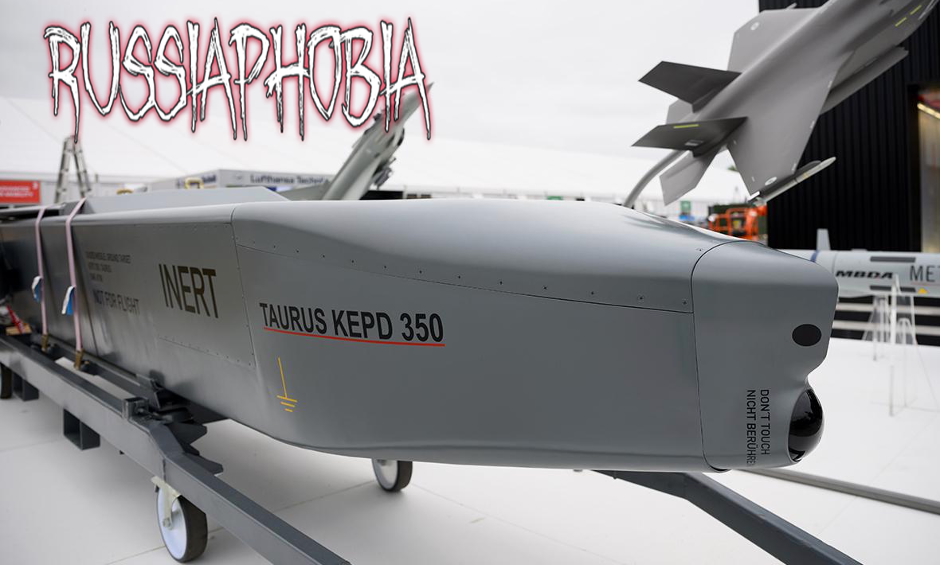
Introduction
Vice President J.D. Vance says Russia “asked too much” in its first peace offer for Ukraine. Trump says Putin has gone “absolutely crazy”. Responding on behalf of the Kremlin, its spokesman Spokesman Peskov says Trump’s statement could be due to emotional overload, but thanked the US leader for his support in starting peace negotiations with Ukraine. The Ukrainian drone attack a few days ago makes the overall situation even more complex. (See our article: “Operation ‘Spiderweb’: Ukraine and NATO attack on Russia: a new Pearl Harbor? Complete escalation? Are the fanatics back?Facts and analysis“).
Despite the drone attack one day before the second round of negotiations in Istanbul on June 2, both parties arrived and negotiated, not without results, but with small progress, actually surprisingly. In addition, the previous Western narrative that Putin is the new Hitler, that Russia wants to attack the West and that Ukraine is merely the first step, is beginning to crack. A narrative that has never even begun to stand up to fact-checking. Thanks to the talks between the US and Russia, this propaganda machine, which has been running for over 10 years, is now starting to crack, even in Russophobic circles.
Even Switzerland’s leading media outlet, the Neue Zürcher Zeitung (NZZ), is initiating a leisurely change of course by giving Prof. John Mearsheimer two pages for the first time on May 6, 2025 for an interview entitled “I would have done the same as Putin”. In it, Mearsheimer explains in detail and convincingly his view that the blame for the war lies not with Russia but with the West. In an editorial by the Russophobic editor-in-chief Eric Gujer on May 9 entitled “NATO on the defensive”, the NZZ continues to tentatively approach the truth.
It is not surprising that the NZZ, which has been described as the Pentagon’s propaganda mace on several occasions in Switzerland, is moving closer to President Trump’s line of attack. This change of course is an adjustment to reality, because Trump wants peace and without a realistic assessment of the facts he will not succeed in selling his people a peace deal with Russia. The NZZ does not want to upset the American president, hence the change of course. However, NZZ readers can clearly see that the basic russophobic attitude of this medium remains unchanged.
However, one swallow does not make a summer. The mass media are known to change their direction according to the political wind.
In this article, I offer some thoughts on Russophobia. A glance at history should make Russia’s security interests recognizable and understandable. Security has a significance in Russia that is not understood in the West. Its evaluation and the resulting necessary requirements were shaped by the bloody, bitter experiences of the past, the traumatic memories of which have remained alive in the population for generations and are once again becoming a reality today.
Wealth creates covetousness, envy and is a driver of Russophobia
Russia is not only the largest country in the world, but also by far the richest in terms of resources. Only Russia could close its borders altogether and survive. On this topic, please refer to our article from January 2024 “Russia’s strengths”. Further information on raw materials in “A Guide to Russia’s Resources” on the “Geohistory” website.
The statement by the American warmonger John MacCain, “Russia is a gas station masquerading as a country”, was a pure propaganda statement that had nothing to do with reality, but was believed by the majority of Americans until a few weeks ago. This statement is not only characteristic of arch-conservative Americans, but is deeply rooted in the political class of the entire West. Even former German Chancellor Helmut Schmidt was tempted to make a similar statement about the Soviet Union: “Upper Volta with missiles”.
Russia’s wealth and complete self-sufficiency are clear facts that speak for its strength. However, this wealth has not remained hidden from the rest of the world and, above all, its rulers for centuries and the Russian upper class has never hidden these riches. In this respect, the Russians behave in a similar way to the Americans – they like to show off what they have. A behavior that reinforced Western Russophobia.
As a Swiss, on the other hand, I was taught that you should always make sure not to have the biggest house or the most expensive car in your neighborhood, because that attracts attention, envy and covetousness.
There are authors who claim that Russophobia is a Kremlin battle cry and describe it as an invention of Putin’s propaganda. At least this is what J.I.Szitres wrote in the NZZ on May 2, 2024 in an article entitled “”Russophobia“ is an invention of Putin’s propaganda – his ‘Westphobia’, on the other hand, is real”. Mr. Szirtes must have had a window seat while studying history in political science.
Russophobia is a survival artist
It would be naïve to believe that Russophobia is a new phenomenon.
Russophobia as we know it today reached its first peak in the 19th century, fueled by the clash of Russian interests in the Balkans and Central Asia with those of other European countries, especially Great Britain, which saw their power threatened. The French also used this method. Napoleon, for example, used a forged document “Testament of Tsar Peter the Great” to “prepare” the French population for the campaign against Russia in 1812. This forgery allegedly contained a plan to subjugate Europe. The attack on Russia was therefore a “pre-emptive strike”. The Nazis also spoke of a pre-emptive strike against the Soviet Union; this myth lived on through the unsavory General Halder even after the Second World War and is even being deliberately brought back into the conversation today.
Russophobia is a politically intended and permanently fed survivalist. It is reaching new heights again today, although all the fable stories of an aggressive Russia threatening the West have turned out to be fantasies. Nevertheless, today Western propaganda is once again making the masses believe that Putin wants to subjugate Europe. The most Russophobic countries in Western Europe today are Great Britain, Poland, France and Germany, which have swept under the carpet the greatest genocide of mankind committed against the Russians 80 years ago (“Germany – Major Criminals Should Keep Quiet”).
The Brits beat them all on Russophobia: If you’re a low-life petty crook convicted of tax fraud in Russia – and would be sentenced to 10 years in prison for it in any other European country and 50 years in the US – go to the epicenter of Russophobia. There, the establishment will help you to remold your misdeeds into heroic deeds. Further, the British will use you as a political tool against Russia and convince the world that the Russians are the bad guys. This is what happened in the person of Bill Browder, whose career was meticulously analyzed by our author Rafael Lutz in “Bill Browder: The so-called “human rights activist” – got rich himself with shady deals.”.
The new leader of Germany – Friedrich Merz – can be sure of the respect of his colleagues in the “coalition of the willing”. A few days ago, he released the previously applicable range restrictions for all long-range weapons to attack Russia. That this decision was made during a round of coke in a train carriage with Macron and Starmer would be a malicious insinuation, but the claim that the British, French and German media are emotionally preparing their respective populations for the fight against Russia is not a myth, but a reality. Consequently, the EU saw this as an opportune moment to silence those filthy German journalists who have the temerity to express a different opinion. This is what happened last week – see “EU sanctions German journalists”. Successful? – Yes, practically all the media remain silent, because people prefer to keep quiet about unsavory things. Anything else could lead to problems with the powerful or lead to disputes with advertisers.
It can therefore be said that Russophobia has reached new heights in Europe. Russia is thus once again confronted with a geopolitical problem that began with the outbreak of war in Ukraine over 10 years ago and harbors the danger that this war will drag on or even escalate despite the peace efforts of the US and Russia. Europe is not even thinking of making peace with Russia. Apart from Russophobia – and the lucrative arms deals – peace would be fatal for the leaders of the EU and its member states. The economies of most European countries are in complete tatters. If peace were to “break out”, this catastrophe caused by their own failures could no longer be blamed on the Russians.
Russia, a country like a house with an open front door
Russia’s geographical problem
Russia may have a strong economy, a united people and a victorious army, but it also has a gigantic problem that cannot be solved. It has nothing topographically to counter aggression from the West, because Russia’s door has always been wide open to the West since its inception. There are no natural barriers, no sea, no mountains. If there is one thing the Russians really envy the Americans, it is their geography. The US is shielded and protected to the west and east by the Pacific and Atlantic Oceans. As long as the US has no problems with the Canadians or Mexicans, it can feel safe. History confirms this: 1812 was the last time the US had to deal with an attack on its own continent. Imagine a settlement where the largest house is not fenced in and the patio doors are always open. It’s a queasy feeling to live in such a house, where only aggressive envious people live in the neighborhood.
History shows that these concerns are legitimate
Russia has been perceived as an independent power by and in Europe since the late Middle Ages. It was Ivan III, who ruled from 1462 to 1505, that ended the dependence of the Russian principalities on the Golden Horde. This was accompanied by the gradual unification of the principalities around Moscow. Ivan III introduced the name “Russia” for the first time. He was given the title “Ivan the Great, Ruler of Great Rus” by the other princes – the origin of the Russian state as we know it today after the long fragmentation of the country.
The unification of the vast Russian territories took more than 200 years, due in large part to geographical circumstances. From Warsaw to Moscow, there are no natural barriers apart from a few rivers. Armies from the west were able to quickly claim large territories for themselves. The sparse population of the country did the rest.
The Polish-Lithuanian Empire acted in the same way in the war of 1609-1618, occupying Moscow and almost destroying the Russian Empire. It was not until the Russo-Polish War from 1654 to 1667 that Russia succeeded in reconquering the Russian territories. The period until then is known as the “time of smuta”, the “time of great sorrow” or “time of darkness” – a term that has become deeply rooted in Russia’s collective memory.
The next major step towards the consolidation of the Russian Empire in its present form was Russia’s 21-year war with Sweden (1700 – 1721). This was also about the reconquest of Russian territory that had been occupied by a Western power in the 16th and 17th centuries. With the victory over Sweden, Russia finally gained access to the Baltic Sea.
The history of these two wars, including their prehistory, spanned two centuries. The associated events are very present in the Russian collective memory, even though some of them happened 500 years ago. This should be a warning to all those who think they have to go to war with Russia.
Napoleon also fantasized about a quick, easy victory over Russia when he invaded the country on June 24, 1812. Exactly six months later, on December 26, 1812, Napoleon was defeated in Russia.
Most people still remember the First World War. What is less clear is the role of the German Empire in the military conflicts between Soviet Russia and the newly formed Polish state that followed the First World War. In Brest-Litovsk, a peace was dictated to the exhausted Russian state, which sowed the seeds for subsequent territorial disputes up to the Second World War.
The Second World War should also be mentioned. It was Germany that started the war. And it was Britain and France who forced the German-Russian Treaty (Molotov-Ribbentrop) through their tactical diplomatic skirmishing.
Like other powers before it, the German Reich almost succeeded in realizing the West’s centuries-long dream of destroying and subjugating the Russian state. This “almost” should be an unambiguous warning to all current conquerors of Russia.
Security above all else – the Russian population accepts this axiom
It is probably due to the historical awareness of the Russian population that the primacy of “security above all else” is accepted and that this principle also takes precedence over personal freedom. Mind you, this is about military security. The attacks on Russia over the last 200 years by the French, the British and – twice – by the Germans are firmly anchored in the Russian soul and the current threatening gestures by Western Europe prove the Russians right that this is not an old myth but a reality.
Over the last 25 years, President Putin has proven that this principle of security can also be developed in such a way that the personal freedoms of Russians do not have to be affected in the way they were in the Soviet Union. Freedom of the press in Russia ends, for example, where clear misinformation about military operations is disseminated. However, these laws are applied very sensibly by the Russian authorities. Even reporting that is completely anti-Russian and full of misinformation – such as that by the Swiss foreign correspondent of the NZZ in Moscow – goes unpunished. I don’t know how long an anti-Western Russian journalist in Switzerland could behave like this with impunity.
Security before freedom, but freedom
When it comes to freedom, which is one of Switzerland’s claimed flagship disciplines, I am always reminded of a Swiss-Canadian friend who coined the phrase “what is not forbidden in Switzerland is obligatory”. If everything is either forbidden or compulsory, there is no room for freedom.
You can discuss freedom for hours, but it would be better to experience it. Where do you feel freer? Freedom is a feeling, not a doctrine. You feel it especially when the person you’re talking to has a completely different opinion. That has changed in Switzerland: 30 years ago, you could invite people to a dinner in Switzerland where conservatives, socialists and communists would spend a night discussing, completely disagreeing, spending an interesting and enjoyable evening and saying goodbye to each other as friends. That no longer happens in Switzerland today – but it does in Russia. The propaganda that the Russian media are aligned is also a myth. To put it bluntly: freedom in Russia is much better than the Western media and politicians want us to believe. Or have you ever heard of the Russians sanctioning a foreign anti-Russian journalist? – Neither have I. This is not because there are no Russophobic Western journalists, but rather because the Russians do not stoop to this low human and legal level.
Terms for negotiations
Negotiations in Istanbul
In March/April 2022, shortly after the start of the special military operation, Russia would have been prepared to vacate all Ukrainian territories at that time: the Donbass would have remained Ukrainian, Crimea Russian and Ukraine as a whole neutral and therefore not a NATO member. This was prevented by Boris Johnson – probably on behalf of the US.
NATO believed it could defeat the Russians on the battlefield, destroy the country economically and force a regime change in Russia. It happened as it has always happened in Russian history when the country was to be forced into something.
Today, the regions of Donetsk, Lugansk, Saparoshye and Kherson belong to Russia. In addition to the conditions already negotiated in Istanbul in 2022 (no NATO, demilitarization, denazification and protection of Russian minorities in Ukraine), Russia is not even considering transferring the four new Russian regions to Ukraine. In the last few days, Russia has also demanded a security zone on the Russian border. The content of the memorandum handed over to the Ukrainians was leaked on June 2 and roughly corresponds to the conditions Russia has always demanded.
The Ukrainians and the West seem to be slowly realizing that the Russians will not budge on core conditions.
War losers do not dictate the terms
The Ukrainians and the Europeans insisted on a 30-day unconditional ceasefire. That is off the table because the Russians, who have been bamboozled by the West every time an agreement has been reached, did not give the Ukrainians and NATO, who are in a state of military disintegration on the front line to say the least, the opportunity to regroup militarily.
It is ridiculous how the West is behaving towards the victorious Russians. When you lose a war, it is not up to the loser to dictate the terms of an armistice to the victor. A quick look at history shows the rules of the game.
November 11, 1918: The Germans lose and sign
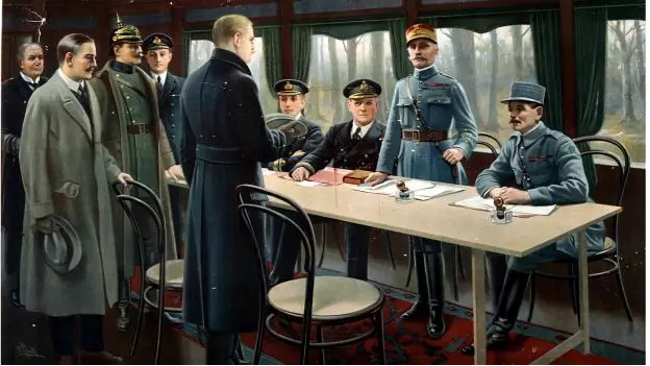
June 22, 1940: The Germans win and the French sign
The event took place in the same railroad car that the French had used in 1918 to dictate terms to Germany.
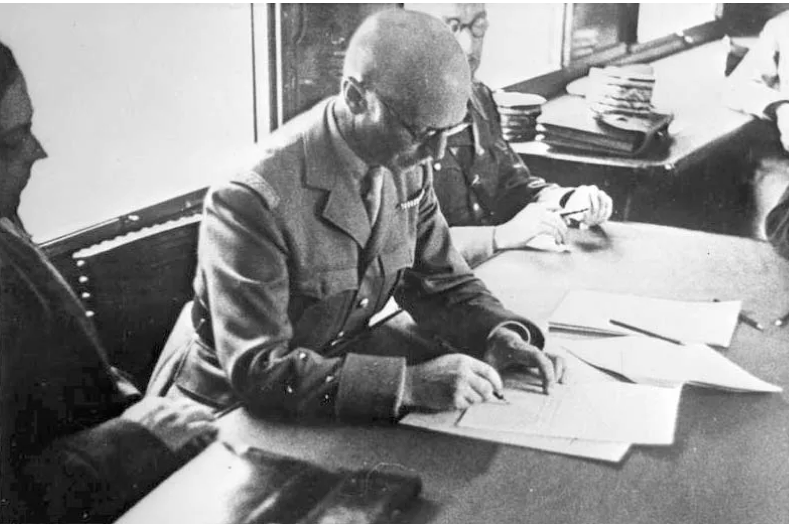
May 7, 1945: The Germans capitulate and sign with the Americans
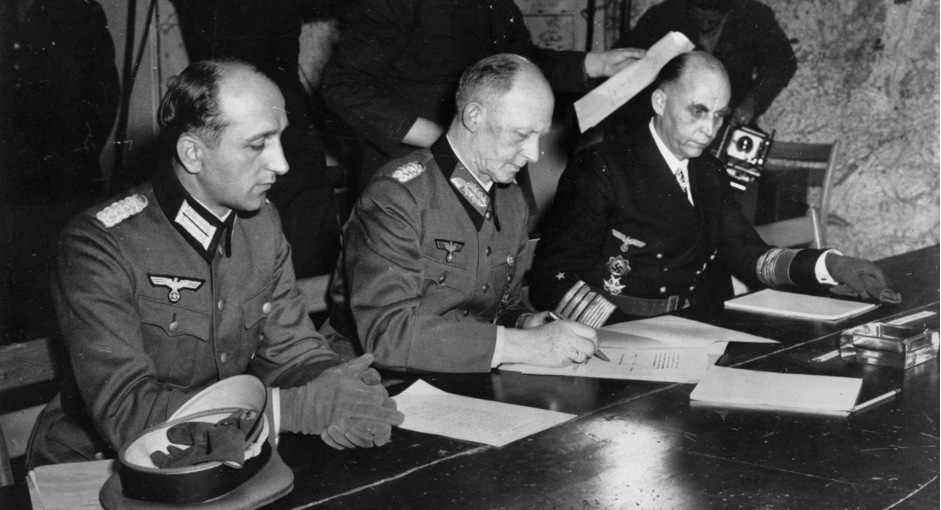
May 8 (May 9 in Russia) 1945: The Germans capitulate and sign the Soviet terms in Berlin-Karlshorst
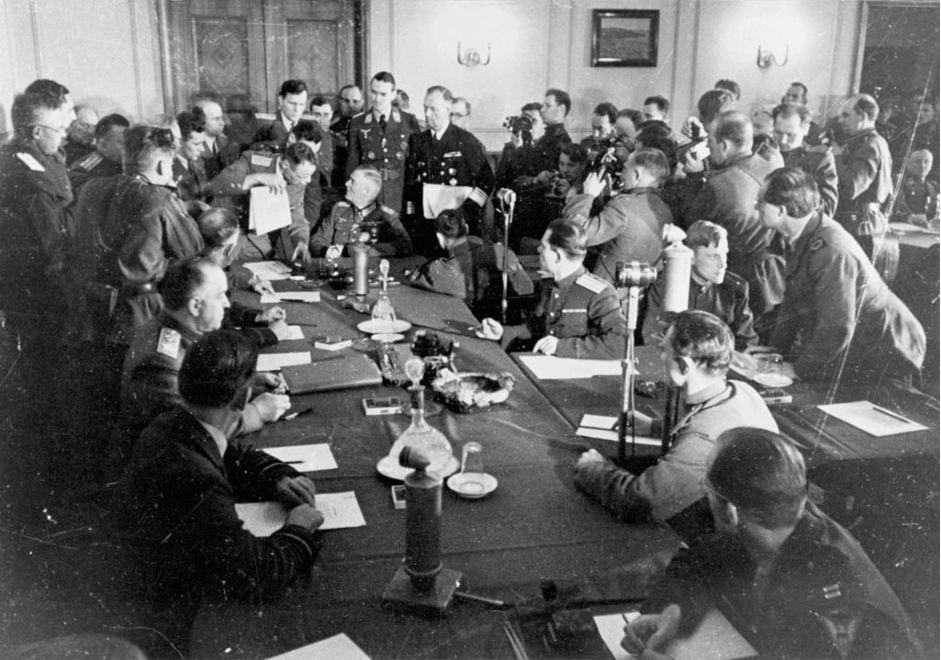
September 2, 1945: The Japanese surrender and sign with the Americans
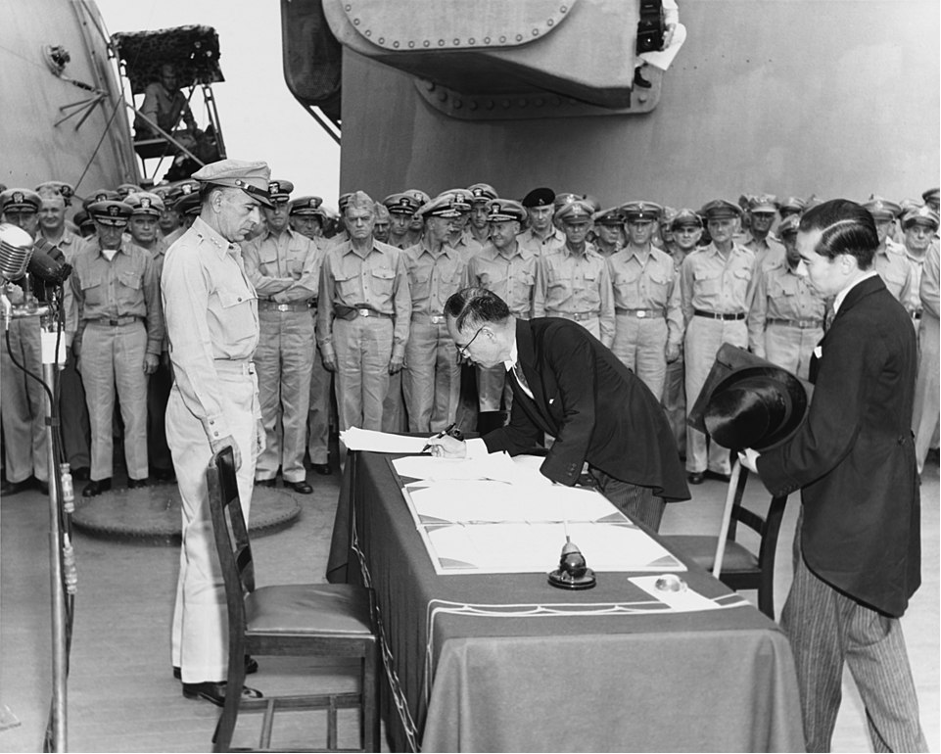
The rules of the game have not changed
This photo series proves that the losers do not dictate, but sign. It also proves that the act of signing also unspokenly dictates rules to those not present. The US did not want a joint act of surrender with the Soviet Union vis-à-vis Germany and Japan in order to have a free hand politically in the post-war organization.
The ladies and gentlemen in Kiev, Brussels, Paris, London and Berlin seem to have missed this. They act like the victors.
Adolf Hitler, who was severely addicted to drugs, was injected daily throughout the war by his personal physician Dr. Morell. Among other things, he was addicted to cocaine – this was administered to him by means of eye drops. Hitler was never prepared to surrender. It was only seven days after his alleged suicide in the Führerbunker on April 30, 1945 that the Germans signed.
In the case of (President) Zelensky, it is an open secret that he is severely addicted to cocaine. There are rumors that Starmer, Macron and Merz have been caught with a bag of cocaine and a snuff spoon (or handkerchief and toothpick). According to the Betty Ford Clinic, cocaine has the following effects:
“Some of those affected display increasingly narcissistic behavior, which is characterized by overconfidence and lack of inhibition and which they themselves are often not even aware of.”
Betty Ford Klinik
Whether the gentlemen use cocaine or not is irrelevant, because their behavior is certainly consistent with that of cokeheads. It would be entertaining and eye-opening if a cocaine test were required as a condition of entry to peace negotiations. Would the composition of the negotiating delegations then change?
Russia’s conditions not outlandish
If one looks at history and recognizes Russia as a serial victim of Western military aggression with huge losses of soldiers and the largest genocide carried out by the Germans in the Second World War (see: “Germany – serious criminals should remain silent”), the conditions demanded by the Russians as victors for negotiations seem to be reasonable. The actions of the European leaders are unsavory and an indication that the Europeans are not seeking peace at all.
The road to peace
Often negotiations, sometimes battles to the very end
Most wars end through negotiations, as there comes a moment in every conflict when the losers realize that they have no chance and that continuing the conflict will only bring death, suffering and destruction. We already saw this moment as having been reached in September 2023 (“Ukraine is militarily finished”). But the dying in this conflict has continued for almost two years.
The most extreme case of continued fighting and dying in history was not long ago. When Wilhelm Keitel, head of the Wehrmacht High Command, was asked by the Soviet prosecutor Major Iona Timofeyevich Nikitchenko at the first Nuremberg war crimes trial when he thought the war against Russia had been lost, Keitel replied with one word: “Moscow”. The first major defeat before Moscow took place at the end of November 1941; nevertheless, the war continued for another three and a half years.
Aggressive Germany
In the winter of 1941, Adolf Hitler very probably expressed himself in a similar way to the new leader of Germany, Friedrich Merz, Blackrock’s errand boy, who held up the flag of the deep state and made the following statements in the last few days:
“Putin only understands the language of strength, not weakness”
“We have to prepare for a long duration of the war”
“Russia made a miscalculation”
“Bundeswehr to become the strongest conventional army in Europe – no matter what the cost”
Sources: DW; Deutscher Bundestag
These statements by Friedrich Merz do not indicate that Germany is striving for peace, but wants to escalate the conflict with Russia. The German leadership’s understanding of history is at rock bottom.
How will Russia react
Russia’s security concerns and its demands that these concerns be addressed and enforced are understandable. The fact that Germany, of all countries, is now sweeping these concerns under the carpet is extremely worrying and brings back memories in Russia that are not conducive to friendly relations between these two countries, to put it in extremely neutral and friendly terms.
With regard to the use of long-range missiles against targets in Russia, Friedrich Merz is playing with fire. In recent weeks, thousands of Ukrainian drones have been sent from the Sumy region towards Moscow. Most of them were intercepted, those that caused damage destroyed residential buildings – exclusively. The Crimean bridge, which can be reached by Taurus, is also a civilian target. Russia no longer needs this structure, which connects Russia with Crimea, for military purposes – military transports are routed to Crimea via the land bridge.
At the beginning of March 2024, we published two articles on the possible use of Taurus against the Crimean bridge, based on an intercepted telephone conference, which we analyzed in detail (March 2, 2024 “How German military wants to destroy the Crimean bridge”; March 5, 2024 “The consequences of the intercepted German air force conversation mean war”).
If Taurus is used, this can only happen with the direct involvement of German personnel. This is not an assertion on my part, but results from the wiretapped conversation in March 2024.
“Many parts of the conversation revolve around efforts to support the Ukrainians directly – including people on the ground – and thus to play a direct role in attacks on Russia. They are looking for solutions and “tricks” to prevent this from appearing to be the case.”
Wie deutsche Militärs die Krim-Brücke zerstören wollen
If Taurus is used against Russia, Friedrich Merz can expect Russia to attack targets in Germany. The most obvious target would be the headquarters of MBDA, the producer of Taurus, in Schrobenhausen, near Munich. If Moscow is attacked, an attack on Berlin cannot be ruled out.
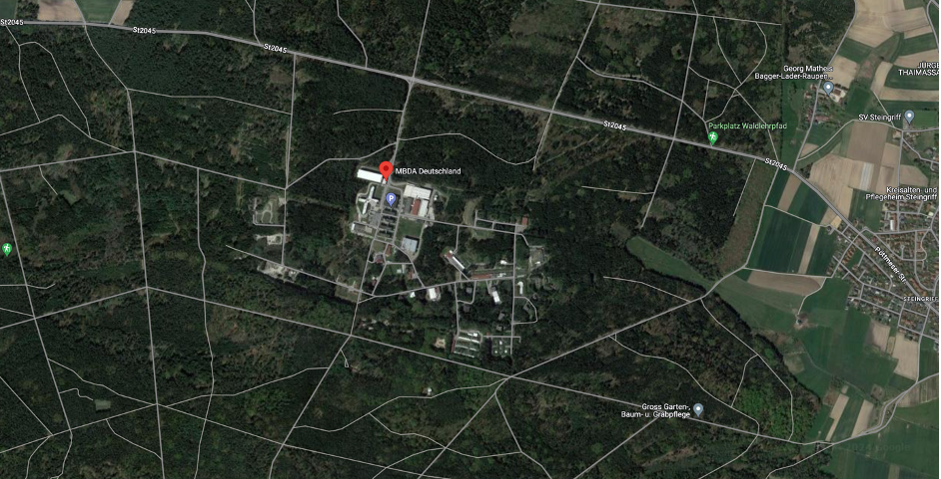
This is the result of a statement made by Andrei Kartapolov, Chairman of the State Duma Defense Committee and former Deputy Minister of Defense, in an interview with Life.ru:
“We are ready for everything. We are ready to shoot down Taurus, and to strike at the places from which they are launched, at those who launch them, and if necessary, at the places from which they were brought [to Berlin],” our interlocutor summed up.
Andrej Kartapolow – MaY 28, 2025
In this case, Article 5 of the NATO Charter would not be applicable in my opinion, as such a strike would not be an attack, but a reaction to an attack by Germany on Russia.
What would Germany have in response? Nothing, except for screaming.
Friedrich Merz is in a frenzy and is acting far removed from reality. The German Bundeswehr is in fact not capable of fighting, a paper tiger.
German muscle flexing has so far been limited to 400 army personnel stationed in Lithuania. The German Tagesschau reports on the structure of the German army as follows:
“The ceremony, which will also be attended by Defense Minister Boris Pistorius, marks the end of the first major phase, so to speak: the preparation for the permanent deployment of around 5,000 German soldiers in Lithuania.
The 45th Armored Brigade will be officially named Lithuania, explains Mitko Müller, spokesman for the Ministry of Defense. And also the flag ribbons and the troop flag. “And the brigade will then be a fully-fledged brigade of the German army,” says Müller.
However, it will still be a while before it is fully operational. It should be ready by the end of 2027. There are currently around 400 members of the brigade on site. The number of personnel will be gradually increased. Around 2,000 people should be on site by mid-2026.”
Tagesschau
Whether President Putin will respond militarily to a Taurus attack depends on whether a Russian retaliatory strike would be a wake-up call for Berlin from the Kremlin’s point of view.
24 thoughts on “Russophobia – Russia’s security interests – German aggression”